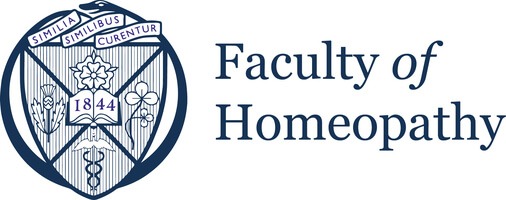Integrated oncology represents a contemporary approach in cancer care, combining traditional medical treatments with complementary therapies. This fusion aims to enhance patient well-being, manage symptoms, and potentially improve treatment outcomes. Unlike conventional oncology that primarily focuses on surgery, chemotherapy, and radiation therapy, integrated oncology broadens the spectrum of care to include holistic treatments, addressing the patient's physical, emotional, and spiritual needs.
A study by Sagar and Lawenda (2009) highlights the integration of mind-body techniques, physical therapies, nutrition, supplements, and natural health products into cancer care. This approach is not just about treating the disease but also about nurturing the individual's overall health and quality of life. It acknowledges that effective cancer treatment involves more than just addressing the tumor; it requires a comprehensive strategy that supports the patient's general well-being.
Furthermore, integrated oncology emphasizes the significance of the patient-practitioner relationship, focusing on personalized care plans that reflect the patient's unique needs and preferences. It encourages active participation from patients in their treatment process, fostering a sense of empowerment and engagement.
This integrated approach has evolved due to a growing recognition of the complex nature of cancer and the diverse needs of those affected by it. As we delve deeper into the various components and benefits of integrated oncology, it becomes clear that this multidimensional approach is not just an alternative but a necessary evolution in cancer care, aiming to provide comprehensive, patient-centered treatment.
A study by Sagar and Lawenda (2009) emphasizes the role of mind-body techniques in integrative oncology. These techniques, including practices like meditation, yoga, and relaxation exercises, are pivotal in managing stress and improving mental well-being among cancer patients. They help in alleviating anxiety and depression, often associated with cancer diagnosis and treatment.
Physical therapies play a crucial role in cancer care. Regular physical activity and physiotherapy have been shown to improve physical strength, reduce fatigue, and enhance overall quality of life for patients undergoing cancer treatment. These therapies aid in recovery and help maintain functional abilities during and after treatment.
Nutrition and dietary supplements form an integral component of integrated oncology. Proper nutrition is essential for maintaining strength, supporting the immune system, and managing treatment side effects. Research suggests that certain nutritional supplements may enhance the efficacy of conventional treatments and potentially reduce the risk of recurrence.
Botanicals and natural health products are increasingly recognized for their potential role in supporting cancer treatment. These natural products might offer benefits like reducing side effects of conventional therapy and improving patient resilience. However, it's important to approach these treatments cautiously and under the guidance of healthcare professionals to avoid interactions with standard cancer therapies.
Integrating palliative care into oncology focuses on improving the quality of life for patients with advanced cancer. This approach involves comprehensive management of physical symptoms like pain and nausea, as well as addressing emotional, social, and spiritual needs. Studies highlight that early integration of palliative care leads to better patient outcomes and satisfaction.
An interdisciplinary team approach is crucial in integrated oncology. This involves collaboration among oncologists, palliative care specialists, dietitians, physiotherapists, and mental health professionals to provide holistic care. This teamwork ensures that all aspects of a patient's health are considered in the treatment plan.
The patient-practitioner relationship is a cornerstone of integrated oncology. Effective communication, empathy, and understanding the patient's preferences and values are essential for personalized care. This relationship fosters trust and ensures that treatment decisions align with the patient's goals and expectations.
Integrated oncology recognizes the importance of psychosocial support for cancer patients and their families. Counseling, support groups, and stress management strategies are vital for addressing the psychological impact of cancer. These services help patients cope with the emotional challenges of their diagnosis and treatment.
Molecular diagnostics play a significant role in personalized medicine within integrated oncology. By identifying specific genetic markers, clinicians can tailor treatments to target individual cancer characteristics, leading to more effective and less toxic therapies.
Nutrition is not just about maintaining health during cancer treatment; it's also a source of empowerment for patients. Understanding the role of diet in cancer care enables patients to make informed choices about their nutrition, contributing to their overall well-being and recovery.
In summary, integrated oncology is a multidisciplinary approach that combines conventional cancer treatments with evidence-based complementary therapies. It focuses on the whole person, addressing the physical, emotional, and spiritual aspects of health to enhance the quality of life and optimize treatment outcomes.
Integrating oncology with palliative care is a pivotal aspect of modern cancer treatment. It's about blending the aggressive treatment of cancer with methods to ease the patient's journey, both physically and emotionally. This integration is not just an add-on but a fundamental part of comprehensive cancer care.
A study by Hui et al. (2015) sheds light on this integration. The research emphasizes the need for a simultaneous care approach, involving interdisciplinary teams. This means bringing together oncologists, palliative care specialists, nurses, and other healthcare providers to create a cohesive unit working towards the patient's well-being. The study highlights the importance of routine symptom screening, which helps in timely addressing pain, fatigue, anxiety, and other distressing symptoms that patients often endure.
Another key component, as underlined in the study, is the development of palliative care guidelines and care pathways. These guidelines ensure that every patient, regardless of their cancer stage, has access to palliative care that addresses their unique needs. This approach extends beyond mere symptom management to include psychological, social, and spiritual support, encompassing the whole person and not just their illness.
The study also brings to the fore the concept of combined tumor boards. These boards, comprising various specialists, ensure that the patient's treatment plan is comprehensive, integrating both curative and palliative strategies. This collaborative approach facilitates shared decision-making, ensuring that the treatment aligns with the patient's preferences and values.
Furthermore, the integration of oncology and palliative care, as suggested by the research, has shown to improve patient outcomes. Patients receiving integrated care experience better symptom control, reduced anxiety and depression, and an overall enhanced quality of life.
In conclusion, integrating oncology with palliative care represents a paradigm shift in cancer treatment. It acknowledges that effective cancer care involves not just combating the disease but also nurturing the patient's quality of life throughout their treatment journey.
Interdisciplinary teams play a crucial role in integrated oncology, bringing together diverse expertise to enhance patient care. This approach involves the collaboration of various healthcare professionals, including oncologists, palliative care specialists, supportive care clinicians, and primary care doctors.
A study by D’Ambruoso et al. (2016) emphasizes the importance of a shared mental model among healthcare professionals. This model facilitates shared decision-making and comprehensive treatment planning, especially for patients with advanced cancer. It ensures that all aspects of a patient's condition, including physical, emotional, and psychological needs, are addressed in a cohesive and coordinated manner.
The integration of various specialties allows for a more comprehensive assessment of the patient's condition. For instance, while an oncologist focuses on treating the cancer itself, a palliative care specialist can address pain management and symptom relief. Supportive care clinicians play a vital role in managing the side effects of cancer treatment, and primary care physicians ensure the overall well-being of the patient.
This team-based approach is inherently patient-centered. It takes into account the patient's preferences, values, and overall quality of life. By involving professionals from different disciplines, a more holistic view of the patient's health is achieved, leading to tailored treatment strategies that align with the patient's goals and expectations.
Effective communication and coordination among team members are vital for the success of this approach. Regular team meetings, combined tumor boards, and coordinated care pathways ensure that all team members are updated on the patient's progress and can contribute their expertise effectively.
In summary, interdisciplinary teams in integrated oncology offer a multifaceted approach to cancer care. By combining the expertise of various healthcare professionals, this approach ensures comprehensive, patient-centered care that addresses the complex needs of cancer patients.
Cancer diagnosis and treatment often bring significant psychological and social challenges for patients and their families. It's not just a physical battle; the emotional and mental strain can be overwhelming. Recognizing and addressing these psychosocial aspects is a crucial component of integrated oncology care.
Integrated oncology increasingly acknowledges the importance of psychosocial support. A study by McQuellon, Hurt, and DeChatelet (1996) emphasizes the role of integrated psychosocial services in cancer centers. These services, like the Cancer Patient Support Program (CPSP) and Psychosocial Oncology Program, offer vital support, extending beyond medical treatment to include counseling and emotional support, crucial for patients and families navigating the cancer journey.
The emotional and mental health needs of cancer patients are diverse and complex. They range from coping with the shock of diagnosis to managing the stress and anxiety of treatment and the fear of recurrence. Effective psychosocial care involves personalized support tailored to individual needs, facilitating coping strategies and resilience building.
Healthcare providers play a pivotal role in recognizing and addressing these needs. It’s essential for them to be attuned to the signs of psychological distress and to initiate appropriate interventions or referrals to specialized services when necessary.
The impact of cancer extends to family members and caregivers, who often experience significant stress and emotional burden. Providing support for these individuals is equally important, as they are integral to the patient's support system. Educational resources, support groups, and counseling can be invaluable in helping them navigate their roles effectively.
In conclusion, the psychosocial aspects of cancer care are an indispensable component of integrated oncology. Addressing these aspects leads to better patient and caregiver well-being, improved treatment compliance, and overall enhanced quality of life during and after cancer treatment.

Consultant in General Internal Medicine (GMC reg. number: 7541548) and Specialist in Complementary Cancer Care
MBBS, MRCIM (Spain), MSc Homeopathy, MFHom, Master practitioner in Ericksonian Hypnotherapy and Neurolinguistic Programming, MSc in Nutrition
Integrated medicine Doctor and Holistic Medicine Practitioner



